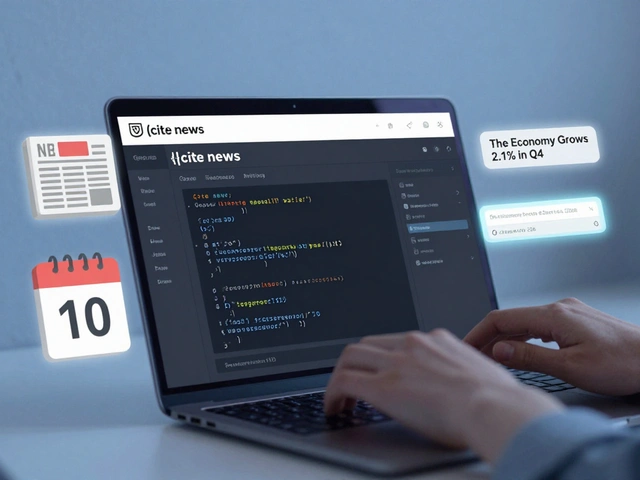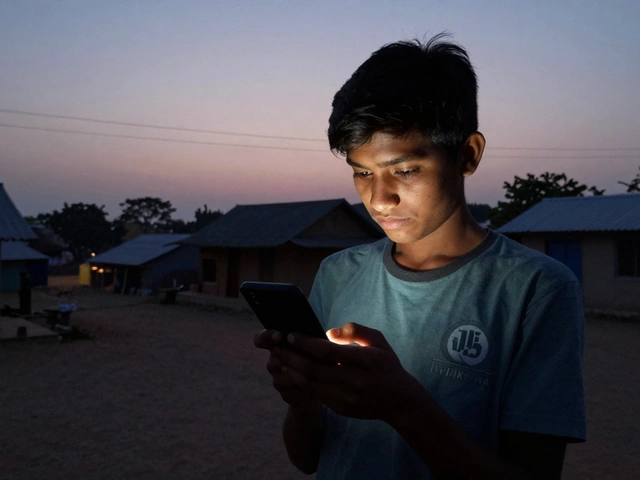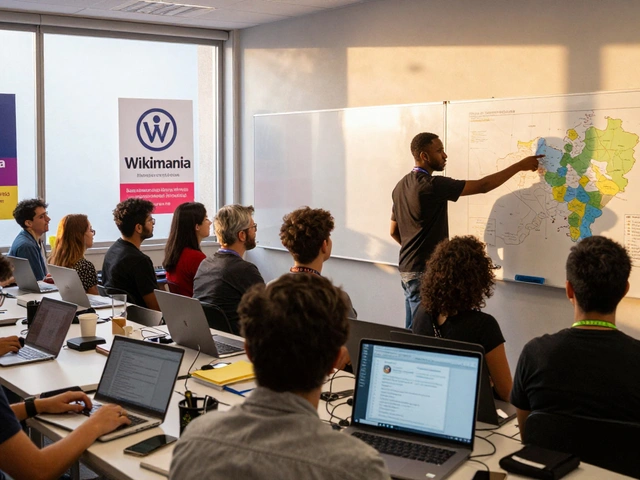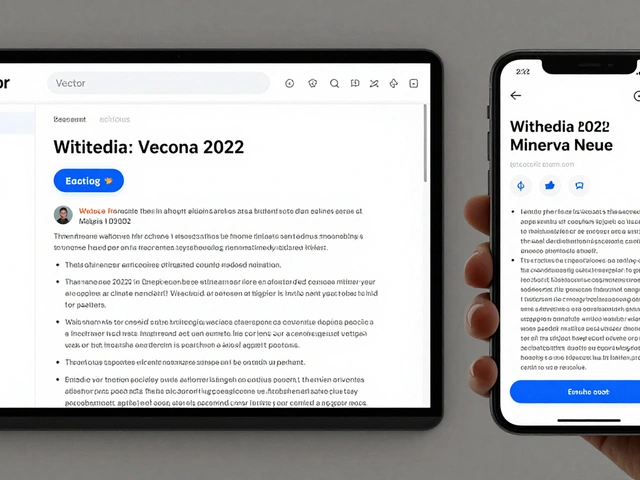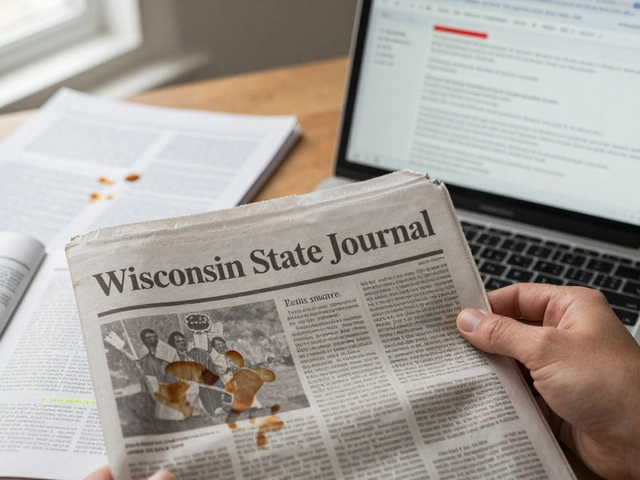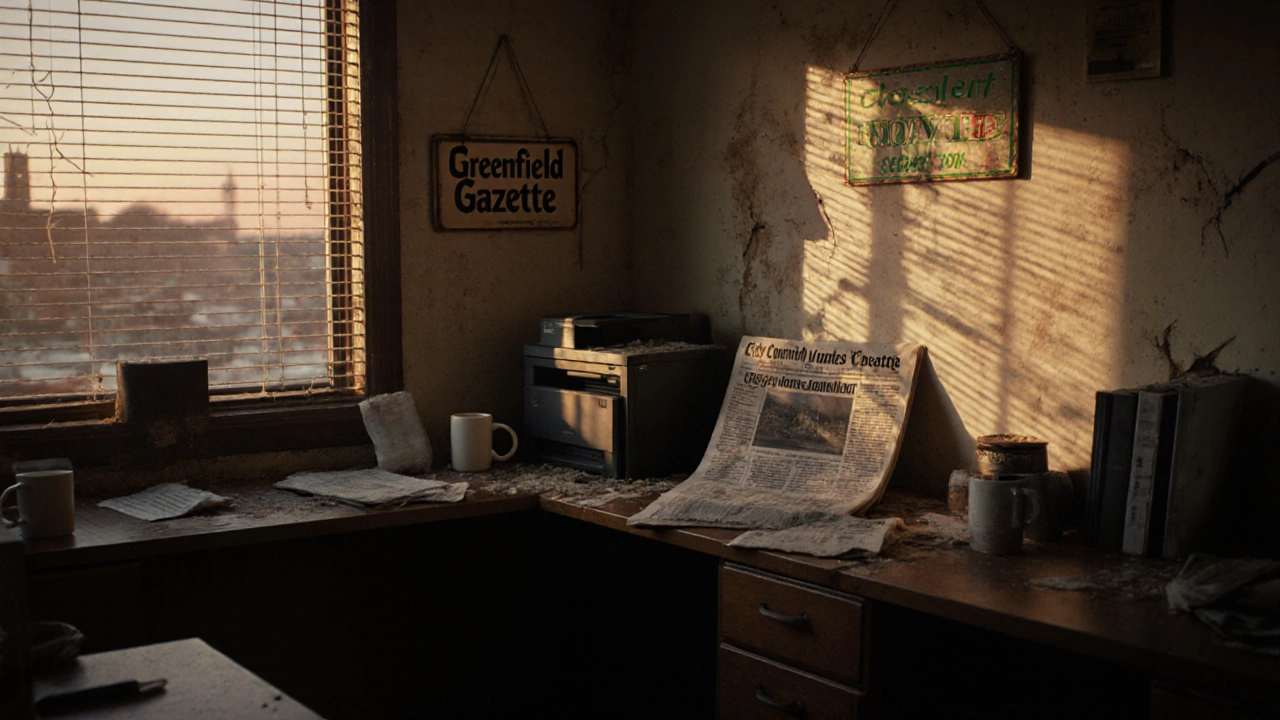
Wikipedia is often the first place people look for news about their town, city, or region. You search for Madison Wisconsin tornado or Chicago city council vote, and there it is - a Wikipedia page with a timeline, quotes, and links. But how much of that information actually came from trustworthy local news sources? And does it matter if the local paper shut down five years ago?
The answer isn’t simple. Wikipedia doesn’t create local news. It aggregates it. And that makes all the difference.
How Wikipedia Gets Local News
Every article about a local event - a school board meeting in rural Ohio, a protest in Detroit, a bridge closure in rural Oregon - relies on external sources. Wikipedia’s rules require that all claims be backed by reliable published sources. That means no blogs, no social media posts, no anonymous forum threads. It has to be something that’s been edited, fact-checked, and published by an organization with editorial standards.
For big cities like New York or Los Angeles, that’s easy. The New York Times, LA Times, and local TV stations are all well-established. But what about places like Dubuque, Iowa, or Butte, Montana? Where the local newspaper closed in 2018? Where the only remaining news outlet is a weekly newsletter emailed to 2,000 residents?
That’s where reliability starts to break down.
Regional Differences in Source Quality
Wikipedia’s reliability isn’t uniform. It mirrors the health of local journalism - and that varies wildly across the U.S. and globally.
In urban areas with active newsrooms, Wikipedia articles about local events are usually accurate and well-sourced. A 2023 study by the Tow Center for Digital Journalism found that 87% of Wikipedia articles covering municipal elections in cities with populations over 250,000 cited at least two reputable local news outlets. In contrast, articles about similar events in towns under 25,000 people cited only one reliable source - if any - in 63% of cases.
Why? Because in smaller communities, the pool of reliable sources shrinks. Some towns now rely on hyperlocal blogs run by retired teachers or volunteer parent groups. Others use press releases from city halls as their only news. Wikipedia editors are supposed to reject these as unreliable - but they’re often the only thing available.
That leads to gaps. In some rural counties, Wikipedia articles about local government decisions have no citations at all. In others, they’re filled with links to Facebook posts from city council members. That’s not just incomplete - it’s misleading.
What Counts as a Reliable Source?
Wikipedia has a formal policy on reliable sources. It’s not just about the name of the outlet. It’s about how it operates.
Reliable sources include:
- Traditional newspapers with editorial staff (even small ones, if they have a history of fact-checking)
- Local TV and radio stations with dedicated news departments
- Academic journals or government reports published by official agencies
- News wires like the Associated Press or Reuters
Unreliable sources include:
- Personal blogs or websites with no editorial oversight
- Press releases from political groups or corporations
- Facebook pages or Instagram accounts of local officials
- YouTube videos uploaded by anonymous users
But here’s the catch: Wikipedia editors aren’t always experts in local media. A volunteer in New York might not know that the Greenfield Gazette - a 120-year-old weekly in Vermont - still has a full-time reporter. They might dismiss it as “not reliable” because it’s not on the radar of national media.
That means some truly credible local sources get ignored - while low-quality ones slip through because they look official.
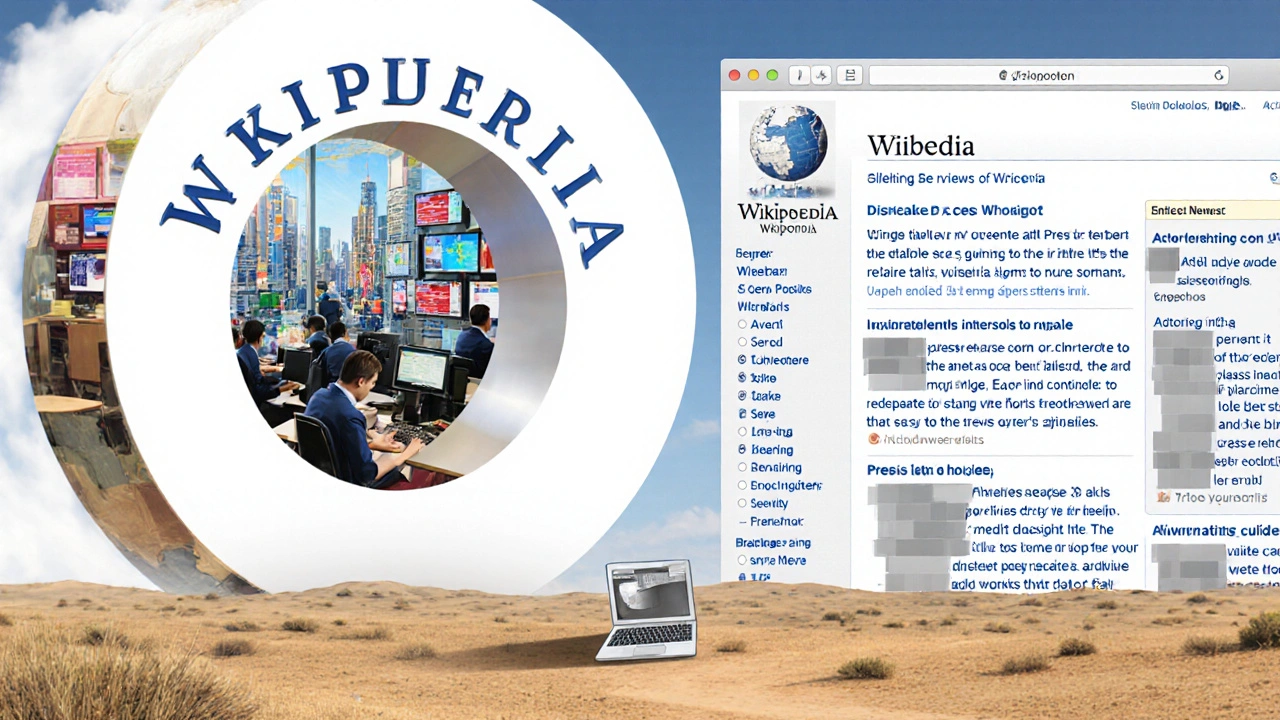
The Decline of Local News and Its Impact on Wikipedia
Since 2004, over 2,100 local newspapers in the U.S. have shut down. That’s nearly 40% of all local papers. In 2025, more than 1,300 counties in the U.S. have no daily newspaper at all. Some have no newspaper of any kind.
What happens to Wikipedia when the source disappears?
It doesn’t vanish. It just gets filled with whatever’s left. That might be:
- State government press releases
- University research centers publishing summaries
- Nonprofits with agendas
- Reposts from national outlets that only mention the town in passing
These aren’t always bad. But they’re not the same as on-the-ground reporting. A press release says “the city approved a new zoning plan.” A local reporter explains why three neighborhood groups opposed it, what the mayor said in private, and how it affects property taxes.
Wikipedia loses that nuance. And readers don’t realize what’s missing.
How to Check If a Wikipedia Article Is Trustworthy
Not all Wikipedia articles are created equal. Here’s how to tell if the local news on Wikipedia is trustworthy:
- Look at the references. Click the numbers at the end of the article. Do they link to actual news sites? Or just government PDFs or blogs?
- Check the date. Is the most recent source from 2020? That’s a red flag. Local events change fast.
- See how many sources. One source? That’s risky. Two or more? Better. Three or more from different outlets? That’s strong.
- Read the talk page. Click “View history,” then “Talk.” Are editors arguing about the sources? That’s a sign the article is being scrutinized - and that’s good.
- Compare with other sites. Search for the same event on Google News. Do major local outlets cover it? If not, Wikipedia might be the only source - and that’s a problem.
For example, if you’re reading about a new library funding vote in Amarillo, Texas, and the only citation is a link to the city’s website - that’s not enough. Look for the Amarillo Globe-News or local TV station coverage. If you can’t find it, the Wikipedia article might be incomplete or biased.
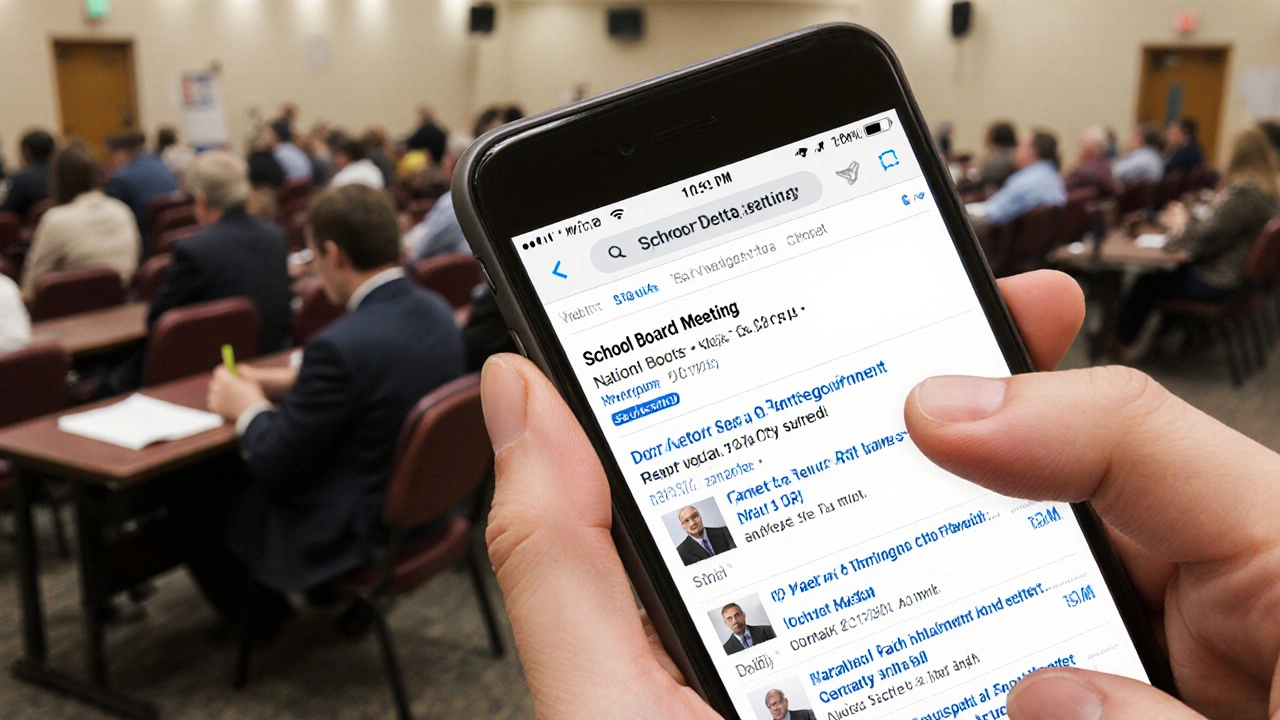
What Happens Outside the U.S.?
The problem isn’t just American. In countries with weak press freedom or underfunded media, Wikipedia becomes a primary source of local news - even when it shouldn’t be.
In India, for instance, many small towns rely on Wikipedia because local newspapers are either state-controlled or have stopped printing. In Brazil, Wikipedia articles about municipal corruption often cite only activist blogs because traditional outlets fear legal retaliation.
Wikipedia’s neutrality policy is meant to prevent bias. But when the only sources available are partisan, incomplete, or self-serving, neutrality becomes impossible.
That’s why Wikipedia pages in some regions are filled with contradictions - different editors adding conflicting claims, each backed by their own unreliable source. The article doesn’t reflect truth. It reflects conflict.
Can Wikipedia Fix This?
Wikipedia’s community has tried. There are now regional “WikiProjects” focused on local journalism - groups of volunteers who track which newspapers are still active, which are gone, and what to use instead.
Some editors in the UK have built databases of surviving local papers. In Canada, volunteers have created guides for sourcing small-town news. In the U.S., the “Local News Initiative” helps editors identify credible small outlets.
But these are grassroots efforts. They’re not funded. They’re not mandatory. And they can’t keep up with the speed at which local news is disappearing.
Wikipedia can’t replace journalism. It can only reflect it.
What You Should Do
Don’t treat Wikipedia as your only source for local news. Use it as a starting point - not an endpoint.
If you care about what’s happening in your community:
- Support your local paper - even if it’s a newsletter or a website with ads.
- Subscribe to local email newsletters - many are free and more reliable than social media.
- Attend city council meetings. Watch them live if you can’t go in person.
- Report missing or inaccurate Wikipedia entries. You don’t need to be an expert to fix a broken link.
Wikipedia is a mirror. It shows you what’s being reported - but not what’s being ignored. And in too many places, what’s being ignored is the truth.
Can Wikipedia be trusted for local news?
Wikipedia can be trusted for local news only if it cites multiple reliable sources like local newspapers, TV stations, or official government reports. In areas with strong journalism, it’s often accurate. In places where local news has collapsed, Wikipedia may rely on press releases, blogs, or social media - which aren’t reliable. Always check the references.
Why do some Wikipedia articles have no sources for local events?
Many small towns no longer have local newspapers or reporters. When a news outlet shuts down, Wikipedia editors have nothing credible to cite. Some editors use government press releases or blogs as substitutes, but these don’t meet Wikipedia’s reliability standards. The article may still exist - but without solid sources, it’s incomplete or potentially misleading.
Are hyperlocal blogs reliable sources on Wikipedia?
Generally, no. Wikipedia considers hyperlocal blogs unreliable unless they have a clear editorial process, regular publishing history, and are recognized by other news organizations. Most are run by volunteers or activists without fact-checking. Even if they’re accurate, they don’t meet Wikipedia’s standards for sourcing.
How can I help improve Wikipedia’s local news coverage?
You can add citations from credible local sources you find - like a town’s official website, a local radio station’s article, or a newspaper archive. If you notice an article has no sources, you can edit it or flag it for review. You don’t need to be an expert. Just make sure your sources are published, independent, and have a track record of accuracy.
Do national news outlets count as reliable for local stories?
Sometimes. If a national outlet like NPR or the Associated Press covers a local event in detail - yes. But if they only mention it in a single sentence or as part of a broader national story, it’s not enough. Local context matters. Wikipedia needs sources that actually report on the local issue, not just reference it.
If you’re reading a Wikipedia article about your town and notice something missing or wrong, don’t assume it’s correct. Check the sources. Look for local reporters. Ask questions. The truth isn’t always on Wikipedia - but it’s often still out there.
